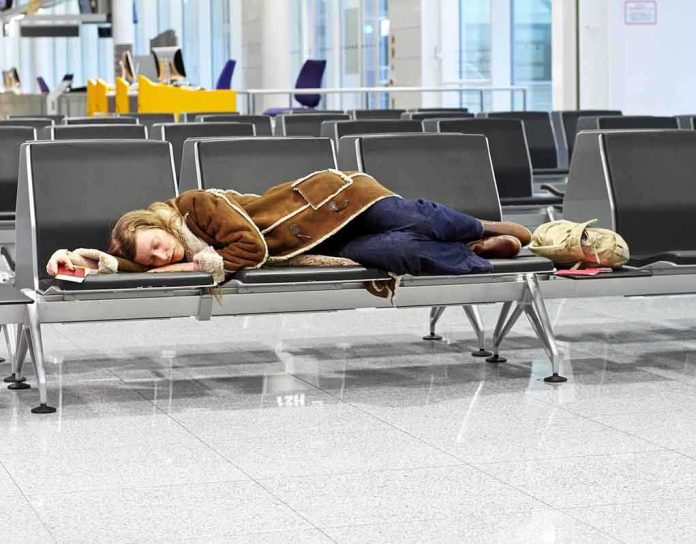
America’s skies are being managed by air traffic controllers who just missed their first paycheck, sparking warnings that the entire system may be less safe than travelers assume.
Story Snapshot
- Thousands of air traffic controllers missed their first paycheck because of the government shutdown.
- The National Air Traffic Controllers Association warns the system is less safe due to staffing and morale concerns.
- Controllers face mounting stress and uncertainty, raising questions about how long the system can remain resilient.
- The shutdown exposes vulnerabilities in the infrastructure behind every safe landing and takeoff in the United States.
Controllers Sound the Alarm Over Safety Risks
The National Air Traffic Controllers Association has issued a stark warning: missing their first paycheck amid the government shutdown is not just a financial inconvenience—it’s a threat to the safety of the entire air traffic system. Controllers are the invisible custodians of the nation’s airways, guiding planes through bad weather, crowded skies, and technical glitches. Without pay, their focus and morale are tested, potentially eroding the safety margins the public takes for granted.
Controllers are beginning to ask how much longer they can maintain the vigilance required for their jobs. The stress of working without pay is compounded by the uncertainty of when the shutdown will end. This uncertainty doesn’t just affect controllers—it ripples through every airport, every flight plan, and every passenger seat, threatening the collective confidence in America’s aviation safety net.
The Human Toll: Stress, Fatigue, and Systemic Vulnerability
Controllers operate in an environment where split-second decisions can mean the difference between safety and disaster. The loss of income means some are forced to make hard choices about household expenses, adding a layer of distraction to an already high-stakes profession. As the shutdown drags on, fatigue and anxiety grow, increasing the risk of error. Even those determined to stay focused are not immune to the psychological toll, and experts warn that sustained stress could compromise the system’s reliability.
Controllers have always been known for their professionalism, but their warnings about safety are not hyperbole. The system is designed to be resilient, but it is not invincible. The shutdown has revealed just how fragile the support structures are, and how dependent safe skies are on a workforce that feels secure, respected, and adequately compensated.
Long-Term Implications: Trust and Infrastructure at Risk
The government shutdown is more than a temporary crisis; it is a stress test for the infrastructure behind every safe takeoff and landing. If controllers continue without pay, the risk of attrition grows, potentially leaving gaps in coverage and institutional knowledge. The public’s trust in aviation safety is built on the assumption of a stable, well-supported workforce. Breaching that trust has consequences that extend far beyond the controllers themselves, shaping the future of air travel in the United States.
The situation has prompted calls for reforms and emergency action to protect the backbone of America’s air traffic system. The longer the shutdown lasts, the more pronounced the cracks in the system become, forcing policymakers and the public to confront questions about the sustainability of critical infrastructure when government support falters. The lesson emerging from this impasse: no system is safer than the people who manage it, and their well-being is inseparable from the nation’s security in the skies.
Sources:
Expert sounds alarm over impact of government shutdown on air traffic control







